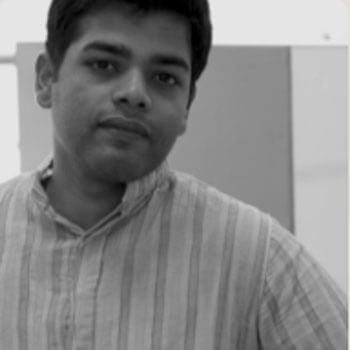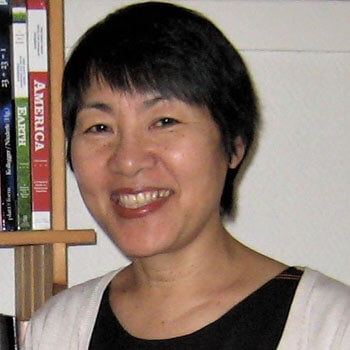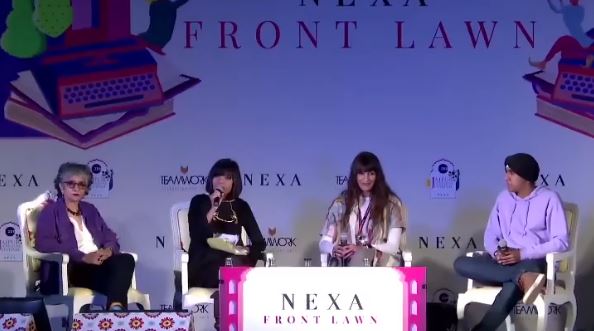India’s popular Jaipur Literature Festival will bring together writers from across India representing a multitude of diverse languages this month.
India’s colourful literary heritage will be a focus at this year’s Jaipur Literature Festival as it brings together writers from Assamese, Bengali, Gujarati, Hindi, Malayalam, Marathi, Nagamese, Oriya, Prakrit, Rajasthani, Sanskrit, Santhali, Tamil and Urdu writing. The programme explores the magnificent legacy of these languages while examining contemporary trends in writing.
Beginning 23 January the festival will feature 300 speakers from India as well as across the world.
Conversations will aim to sustain the vastness of national languages amidst galloping globalisation and draw on an incredible linguistic and literary legacy.
Rajasthani language finds voice in its distinctive syntax and variety of dialects –- the iconic Rajasthani poet Chandra Prakash Deval, a pioneer poet of Rajasthani literature Raju Ram Bijarnian, eminent authors Ritupriya and Madhu Acharya will speak of the rich heritage and linguistic traditions of the state in a session titled “Rajasthani Binya Kyaro Rajasthanâ€.
In a conversation with author Vishes Kothari, the panel will talk about the unique genius of Rajasthani literature in its many manifestations.

In another conversation, authors Vishes Kothari (who translates from Rajasthani to English) and Chandra Prakash Deval (convener of Rajathan’s Sahitya Akademi chapter) will speak to bilingual novelist Anukrti Upadhyay on Rajasthani writer, poet and litterateur Vijaydan Detha’s rich legacy of magical narratives.
Detha belonged to a family of bards and contributed enormously in bringing folklore and oral traditions into the mainstream of Indian literature. This session will feature Vishes Kothari’s vivid English rendering of the Timeless Tales from Marwar, a handpicked collection from Detha’s celebrated Batan ri Phulwari – literally “Garden of Talesâ€.
On the recent protests in the country against Citizenship Amendment Act, which provides a premise for religious discrimination, it could be interesting to hear the views of these authors on linguistic diversity at a time when Indian state is promoting “One Nation One Language” policy.

“Language has been the rallying point for various sub-national movements across the country,” writes Vishes Kothari in the First Post. “The recent push for the One Nation-One Language model has been met with sharp resistance and criticism from many parts of the country, including Assam, West Bengal, Tamil Nadu and Karnataka. Rajasthan, on the other hand, is as quiet as quiet can be. It has been so for seven decades now.”
“Chandraprakash Dewal says that for 70 years now, generations of students have not had the chance to be educated in their mother tongue.” These conversations are likely mature at the festival.
Modern Hindi fiction represents a continuum between many pasts and an emergent present. Two prominent writers evoke the landscape of change. Kamlakant Tripathi’s recent novel Sarayu Se Ganga is a magnificent evocation of history and culture across the last century. Another prolific Rajasthani author Nand Bhardwaj’s latest collection of short stories Badalati Sargam also covers a range of themes that highlight the quirks and contradictions of a changing society. In conversation with celebrated Hindi author Anu Singh Chowdhary, they will speak and read from their new work.

A session titled “The Rivers, The Sky, The Selfâ€, with four writers from north-east India, will speak of the landscape of memory, evoking folklore, oral narratives and the histories of their people. The panel consists of Esther Syiem, a bilingual poet, academic and playwright, who has also worked with oral scripting in Khasi; Easterine Kire, an award-winning poet, short story writer and novelist from Nagaland and author of the novel A Respectable Woman set against the decisive Battle of Kohima; and Mridul Haloi, winner of the Sahitya Akademi Yuva Puraskar in 2017 for the poetry collection Akale Aso Kushale Aso. The distinguished panel will be in conversation with academic and feminist publisher Urvashi Butalia and read from and speak of their work and the legacies of myth and memory.
The landscape of Indian literature is multilingual and multivocal with 22 official languages and thousands of mother tongues and dialects. “Many Languages One Literature†will be a session that interrogates and celebrates the unity in this diversity with three celebrated writers - Aruni Kashya, KR Meera and Shubhangi Swarup will be reading from their works in Assamese, Malayalam and English, as they discuss the literary and linguistic context of their inspirations.
Sanskrit has been the primary language of knowledge, learning and ritual in ancient and medieval India. Its rich traditions permeate most modern Indian languages, and its tremendous influence continues in every aspect of Indian life. It remains yet very much a living language, taught in schools, broadcast on All India Radio, and with over 90 publications published in it across the nation. In a splendid session, writers and scholars from across the world will discuss the grandeur, practicality and accessibility of Sanskrit and its role in the culture and daily life of modern times. The panel will feature Oscar Pujol, writer of the Sanskrit dictionaries titled Sanskrit-Catalan and Sanskrit-Spanish; Madhura Godbole, programme head of the Sanskrit Language Department at the American Institute of Indian Studies; Makarand R. Paranjape, poet, scholar and Director of the Indian Institute of Advanced Studies who has written extensively on pre and post-colonial Indian culture politics and society; Rachel Dwyer, Professor of Indian Culture and Cinema at School of Oriental and African Studies, University of London.

Leave a Reply